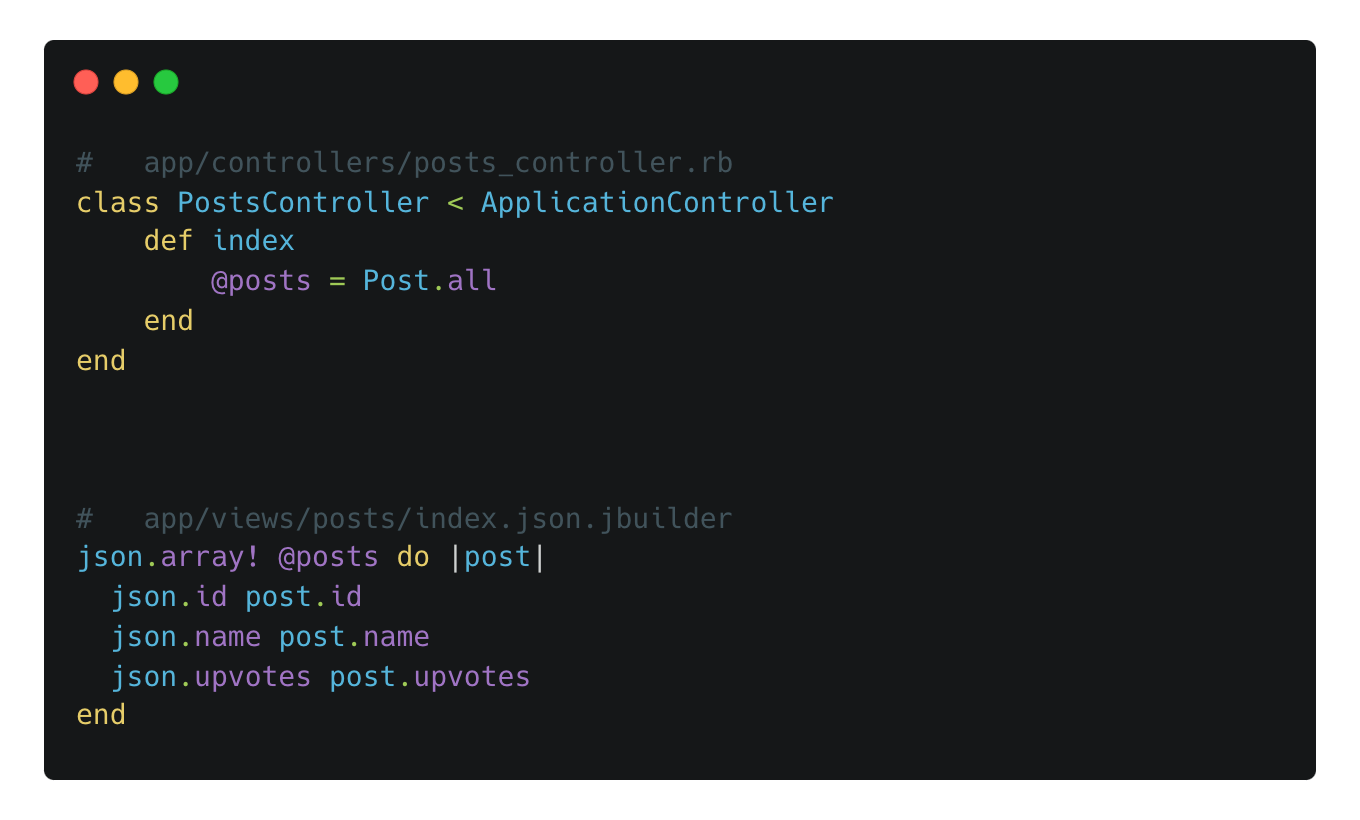Building APIs with Jbuilder: A Comprehensive Guide

As web developers, we are constantly building APIs that are fast, reliable, and easy to consume. In the Ruby on Rails ecosystem, Jbuilder is a powerful tool that can help us achieve these goals.
Jbuilder is a library for generating JSON in Rails views. It provides a simple, declarative syntax for defining the structure and contents of JSON responses. With Jbuilder, we can quickly and easily build APIs that are well-organized, easy to read, and optimized for performance.
Problem with Rails’ Default JSON Rendering:
By default, Rails provides a way to send JSON responses using the render json: syntax. While this method works for small projects, it can become cumbersome and difficult to maintain as the project grows.
Normally, in rails we can send JSON response as follows:
1
2
3
4
5
6
7
8
9
10
11
12
13
14
def index
@posts = Post.all
render json: generate_response(@posts)
end
def generate_reponse(posts)
posts.map do |post|
{
id: post.id,
name: post.name,
upvotes: post.upvotes
}
end
end
As you can see, generating a JSON response this way can quickly become repetitive and difficult to manage.
This is where Jbuilder comes in. It allows us to generate custom JSON responses for each API request, all while keeping our code organized and easy to maintain.
To use Jbuilder in your Rails project, simply create a .json.jbuilder file for each action that returns JSON data. For example, if you have a PostsController with an index action that returns a list of posts, you can create a index.json.jbuilder file in the app/views/posts directory.
Example:
1
2
3
4
5
json.array! @posts do |post|
json.id post.id
json.name post.name
json.upvotes post.upvotes
end
In this example, we’re using the json.array! method to create an array of JSON objects based on the @posts variable. Inside the block, we’re using json.id, json.name, and json.upvotes to define the properties of each JSON object.
Note that Jbuilder supports a wide range of data types, including arrays, hashes, numbers, and strings. You can even define complex nested structures with ease.
In conclusion, Jbuilder is like a superhero for generating JSON responses in Rails - it saves us from the repetitive and monotonous task of manually creating JSON.
References:

 Never miss a story from us, subscribe to our newsletter
Never miss a story from us, subscribe to our newsletter